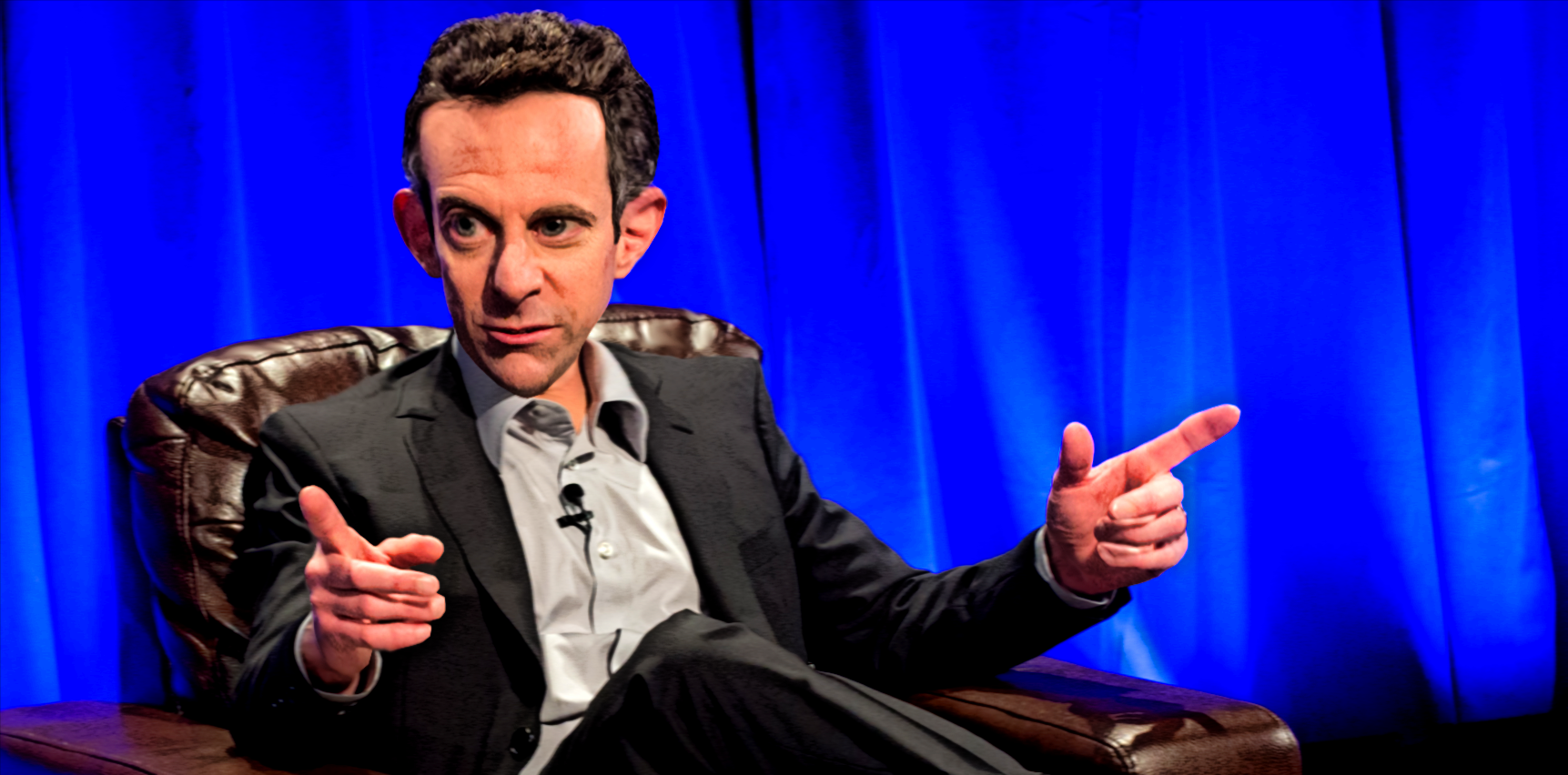To listen to Sam Harris’s Waking Up Podcast is to hear an ongoing rearguard action from the new atheist, neuroscientist and public intellectual, defending his reputation against critics eager to paint him as a supporter, unwitting or otherwise, of bigotry.
Harris’s most recent row pits him against an old foe, Ezra Klein, now editor-at-large at Vox, an American politics website.
The dispute started last April, with Harris interviewing the political scientist Charles Murray, one of the authors of The Bell Curve, which courted controversy mostly for its thoughts on races having different average IQs. Almost 25 years after the book was published, Murray still attracts protestors, most notably when an appearance at a Vermont college turned violent in March 2017.
Harris says he arranged the interview to try to rehabilitate Murray’s reputation, having shunned Murray’s work for years because of the association with racism.
Vox, in return, published an attack piece against Harris, claiming he had allowed Murray to peddle ‘junk science’, and in Harris’s eyes seeking to paint him as a racist. (Klein claimed in an email he neither commissioned nor edited it, but he thought it ‘rang true’.) Further rebuttals followed, but the hubbub eventually died down.
This was until a New York Times piece from Harvard geneticist David Reich last month argued emerging scientific findings about average differences between populations were being suppressed over fears they could stoke racial prejudice, and that this suppression was liable to have the opposite effect to that intended:
‘I am worried that well-meaning people who deny the possibility of substantial biological differences among human populations are digging themselves into an indefensible position, one that will not survive the onslaught of science. I am also worried that whatever discoveries are made – and we truly have no idea yet what they will be – will be cited as “scientific proof” that racist prejudices and agendas have been correct all along, and that those well-meaning people will not understand the science well enough to push back against these claims.’
After Harris tweeted the article snarkily at Klein, the Vox writer turned out a lengthy piece discussing the history of the notion of innate discrepancies between races, and of political correctness more broadly. One key passage reads:
‘I often see pundits – Harris included – who seem far more afraid of “PC [politically correct] culture” than the problems PC culture is trying to address. On some level, that’s understandable. If you’re a white male pundit who trades in controversial opinions, PC culture probably does pose more of a threat to you than the inequalities it means to fight.’
Harris had previously threatened to publish an email exchange between him and Klein if the alleged smearing continued, and finally made good on the threat. But this inadvertently portrayed Harris as angry and pushy, with Klein polite and seemingly reasonable. On discovering this, Harris complained Klein’s ‘evasiveness and gaslighting’ does not come out if readers see the emails without knowing the wider battle fought on Vox, iTunes and Twitter.
Though Klein and Harris have agreed to do a podcast together in light of the above, the saga speaks to a wider failing of Harris, which is to expect better of public debate than is reasonable.
It reminds me of the Graun’s Owen Jones, a socialist pundit who during the darker days of Jeremy Corbyn’s Labour leadership desperately defended himself against accusations of treachery. (He since repented after the last general election, and is once again fully Team Jez.)
There is something pathetic about jealously guarding your reputation in this way, as Harris has acknowledged in his latest podcast. But more importantly, it is futile.
Some topics are so toxic than any contact with them will harm your reputation, and Harris has discussed many of them. The role of biology in influencing average race or sex differences is one. Terrorism and Islam is another. Gun control is a third.
Like Harris, I suspect left wingers are more guilty of smearing those who handle controversial subjects than their counterparts. But that may reflect my own biases, and nobody who follows British politics can ignore that Labour, and the left more generally, run the risk of being slurred as soft on crime, migration or financial trustworthiness for any utterance on those subjects. The same is likely true abroad.
Unlike Harris, I doubt that those who smear do so consciously to conceal what they see as dangerous truths. Many, including Klein, are likely sincere in doubting the role of biology or ideology in human affairs, and believe their opponents are promoting dangerous falsehoods that encourage prejudice.
Most observers are unlikely to sift through the correspondence necessary to form a detailed view on the subject, and resort to sniff tests or gut instinct. In a busy world, it’s hard to blame them.
This is not to say argument is futile, but anybody engaging in controversial debate must accept that you cannot roll around in pigshit without coming up stinky. Sometimes in public debate smears are the cost of doing business. If Harris wants to keep playing, he should accept the rules of the game.
Image by Jimmy Nicholls, based on Sam Harris, September 2014 by Sam Harris
